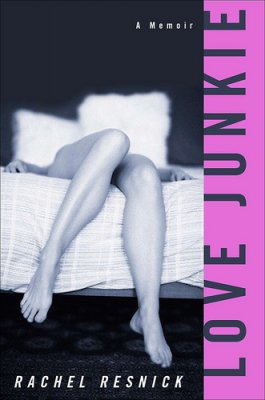photo by Amel Uzonovic for Pexels
by Andrea M. Darcy
Love is certainly a vast concept, and researchers have not been able to come up with an exact criteria for ‘love addiction’ that would make it something you could be diagnosed with by a doctor.
But at the same time, the research shows that symptoms in those with forms of love dependency are similar to symptoms of substance dependence. And that brain regions and neurotransmitters that are activated by substance dependence may also be triggered if we have unhealthy relating issues.
So what is clear is that we can have addictive unhealthy behaviours around relating, and around our ideas of love.
What does it look like to be ‘addicted to love’?
A study attempting to make a psychometric scale for people to assess how addicted to love they are puts it nicely. They say it can be seen as “when love is characterised by obsession, compulsive behaviours, anxiety, and negative life consequences.”
Generalised love addiction means you will prioritise relationships and the attention of others above all else. The addiction here is to the feeling of being engulfed with another. You will have a hidden belief that you are not whole as is, but need someone else to ‘complete’ you and make you feel happy.
Symptoms of love addiction
Symptoms of love addiction can include:
The different types of love addiction
Other types of love addiction include:

photo by Kelly Sikkema for Unsplash
You might fall under several categories of love addiction, or go through phases where you are more one type than the other. They are categories that exist as guidelines, so that you and your mental health practitioner can understand and talk about your struggles.
Romance addiction
Romance addiction can happen even if we are always single.
If you are a ‘romance addict’ you are consumed by ideas of epic, fairy tale love. It’s the sensation of being in love you are hooked on. At the root here can be victimhood and a desire to be saved.
Romance addiction can lead to being increasingly out of touch with real life. You might think someone likes you and create an entire romantic scenario you tell others… even if the other person only said hi to you once or twice. At worst, you might even start to stalk someone.
Symptoms of romance addiction can include:
- constantly distracted by romantic fantasies
- saying no to social events to stay in and read romantic books/watch romantic films
- never having real relationships as you are waiting for your prince/princess
- reading too much into things (he looked at you so he is in love with you)
- obsessing over someone, such as social media stalking, going where you hope they will be
- overinflated ideas of any real interactions
- lack of discernment when it comes to romantic involvement (affairs at work or with married people etc).
People addiction
People addiction goes far beyond love and romance.
We think we “need” a person in our life, no matter what, and are willing to suffer to have it be so. The addiction here can actually be to the pain itself.
At its worst, people addiction can lead to stalking someone, being arrested for harassment, or actually harming or assaulting the object of your affection.
Symptoms of people addiction can include:
- thinking about the other person all the time
- denying your own needs to be around a person
- being terrified of losing touch of the person
- staying with someone who is abusive
- believing the other person is your ‘fate’, or that you will be ‘lost’ or ‘nothing’ without them
- out of control texting/calling/social media stalking
- wanting to know where to other person is all the time
- extreme jealousy and paranoia when they talk to others
- engaging in crazy behaviours to get the other person’s attention or keep tabs on them, such as creating false social media profiles, breaking into their emails, waiting outside their house, and hanging out where they go.
Sex addiction
Sex addiction involves obsessively thinking about sex, and seeking sexual gratification in ways that have negative consequences.
At its root is a need to escape. That could be a desire to escape a life you hate, or escape deep-rooted shame from past events. It can also be about avoiding low self-esteem, loneliness, or repressed anger.
The idea that a sex addict is only someone having many wild affairs is just a cliché. Many sex addicts have very little if any ‘real’ sex, but are hooked into a cycle of self-pleasuring, using porn sites, etc.
Symptoms of sex addiction can include:
- thinking about sex all the time, to the point you are always distracted and underperforming in career, family life etc.
- having many sexual behaviours/thoughts that are secret
- feeling ‘high’ when you engage in these sexual thoughts/behaviours, then ‘low’ and full of shame soon after
- risky sexual behaviour such as unprotected sex, sex with inappropriate people like your boss/friend’s partner, and sex in public places
- always looking for sexual opportunity/ seeing others as a conquest
- risky workplace behaviour such as looking at inappropriate material online or sexual innuendo with colleagues
- saying no to social events to stay at home and watch porn/read erotica/ self pleasure, etcetera
- sabotaging real connections and relationships because of your need for sexual risk, such as cheating on partners or lying to them about your sexual habits.
Is it really a big deal if I am a type of love addict?
Over the long-term these addictions can lead to the same kind of outcomes as drug addiction, alcoholism, and gambling. Addictions control you, you don’t control them. They can distract you to the point you might lose your job, lose your friends, and sabotage your family relationships and all you hold dear.
Even the best case scenario sees love addiction involves a crippling feeling of being trapped by your own behaviours. And of course there is the loneliness, self-hatred, and shame that addiction brings.
Treatment for love and romance addiction
Like any form of addiction, the best thing we can do is seek support. This might start by reaching out to a good friend you are sure you can trust. You might also want to read some books on love and romance addiction, as well as learn what healthy love actually is. Or join forums where you can learn to talk honestly about your behaviours but retain your privacy. And you can always try a twelve steps group such as Sex and Love Addicts Anonymous (SLAA), who holds groups worldwide.
Professional support is of course highly recommended. This might look like a support group led by a trained counsellor, or one-on-one work with a psychotherapist who has experience working with love and romance addiction. They will help you recognise what other things you have been mistaking for love, what love really is, and how you can get such healthy love in your life.
Addicted to love? Harley Therapy connects you with highly experienced love and romance therapists in several London locations. Not in London? Our therapy listings site puts you in touch with UK-wide registered love addiction therapists who can help.
 Andrea M. Darcy is a health and wellbeing writer with counselling training who has written many popular pieces about love and dating. And at one point she ran a dating detox course! Find her on Instagram @am_darcy
Andrea M. Darcy is a health and wellbeing writer with counselling training who has written many popular pieces about love and dating. And at one point she ran a dating detox course! Find her on Instagram @am_darcy



